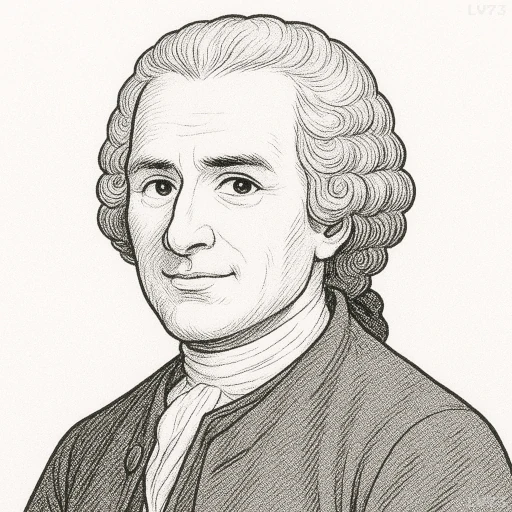“The body politic, as well as the human body, begins to die as soon as it is born, and carries itself the causes of its destruction.”

- June 28, 1712 – July 2, 1778
- Born in Geneva
- Philosopher, political philosopher, writer, composer
table of contents
Quote
“The body politic, as well as the human body, begins to die as soon as it is born, and carries itself the causes of its destruction.”
Explanation
In this quote, Jean-Jacques Rousseau draws a parallel between the human body and the body politic (the political community or society). Just as the human body is born with inherent vulnerabilities that lead to its eventual decay, Rousseau suggests that society, from the moment it is established, contains the seeds of its own destruction. This reflects his belief that all social systems, including governments and political structures, are inherently flawed and will eventually decay due to internal contradictions, corruption, or inequality. In his works like The Social Contract, Rousseau argued that political institutions could be the source of societal inequities, and that, over time, these systems could undermine the common good they were meant to protect.
Historically, Rousseau’s view on the fragility of political systems comes from his skepticism about the ability of governments to remain just and effective over time. He critiqued many of the contemporary political systems of his day, particularly monarchy and aristocracy, which he saw as self-serving and out of touch with the needs of the people. Rousseau believed that the structure of society and its laws could corrupt the individual and lead to social inequality, making the political body susceptible to internal decay. This idea foreshadows some of the revolutionary thoughts that contributed to the French Revolution, as Rousseau’s work called for a radical rethinking of political organization.
In modern times, this quote remains relevant when discussing the fragility and vulnerabilities of political systems today. Whether in the form of democracies, authoritarian regimes, or corporate governance, political structures often exhibit signs of decay over time, whether through corruption, inequality, or the concentration of power. Rousseau’s view encourages reflection on how societies, once founded, carry within them the potential for self-destruction if they fail to address these internal issues. The quote serves as a reminder that even the most stable and seemingly robust political systems are ultimately vulnerable to decay, urging us to consider the ways in which we can create more sustainable and equitable societies.
Would you like to share your impressions or related stories about this quote in the comments section?

